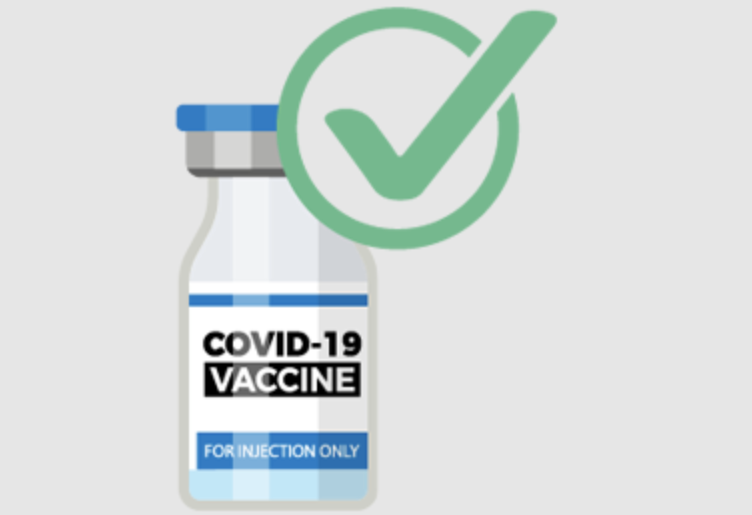As of right now, this is what we know about serious safety concerns raised about these COVID-19 vaccines: the mRNA vaccines, Pfizer© and Moderna©, the Johnson & Johnson©vaccine, and the Oxford/Astrazeneca© vaccine. These are the current vaccines with emergency use authorization (EUA) in the United States. Data continues accruing about their safety.
Earlier we had raised concerns about the mRNA vaccines in terms of allergies. The Pfizer© vaccine for COVID-19 has come under scrutiny for components in their vaccine which could lead to severe reactions by recipients of the vaccine and therefore could lead to anaphylaxis. Allergies to these components, especially polyethylene glycol (PEG), were not studied during the development and trials for this drug nor for the Moderna© vaccine. In fact, people with a history of allergies were excluded from either trial and only those with allergies to PEG or vaccines are suggested not to get the vaccine.
According to the anaphylaxis reports sent to VAERS (as of Jan. 18, 2021) reporting on the COVID-19 vaccines, there have been 50 anaphylactic cases (out of 9,943,247 Pfizer-BioNTechdoses administered) and 21 anaphylactic cases (out of 7,581,429 Moderna doses administered). Forty (80%) and 12 (24%) individuals who developed anaphylaxis after receipt of the Pfizer-BioNTech vaccine had a documented history of allergies/allergic reactions and history of prior anaphylaxis, respectively. Eighteen (86%) and five (24%) individuals that received the Moderna vaccine and developed anaphylaxis had a documented history of allergies/allergic reactions and history of prior anaphylaxis, respectively. Therefore, the full understanding of how the vaccines can impact people with history of allergies is still not well understood.
Another issue that came to light when a physician in Florida received his first dose of the Pfizer vaccine and develop thrombocytopenia, a blood disorder. Three weeks later he died of a brain hemorrhage. In the NEJM Journal Watch published on February 8, out of 31 million people who have received at least one vaccine dose, nearly 40 cases of thrombocytopenia had been reported to federal health officials by the end of January, including one fatality. However, this rate doesn’t appear to be higher than what is seen in the general population. Yet if someone develops thrombocytopenia after receiving one of the mRNA vaccines then he or she should be lucky to have consultation from a hematologist who understands these disorders just like the patient described in the New York Timesarticle, A few covid vaccine recipients developed a rare blood disorder, from February 8.
Johnson & Johnson’s COVID-19 vaccine has not had much to report in terms of any serious safety issues from their trial though now that it has received EUA, then only time will tell if safety concerns are reported. There may be some concern that it does use an aluminum adjuvant, which has been used in other vaccines, but which also have been implicated in triggering autoimmunity. No one has knowledge yet if this could be a problem posed by this vaccine since long-term safety data would be needed to assess this risk.
Finally, the Oxford/AstraZeneca vaccine for COVID-19 has been utilized in other countries besides the United States but has met with some concern over safety. At least 30 cases of anaphylaxis have been confirmed overall so far, out of a little more than 3 million administered doses. These rates are projected to change as more vaccine shots are administered. According to a Nature article from February 16, a handful of volunteers developed Bell’s palsy during the trial but it is unknown if this is a potential side effect of the vaccine itself. According to a Lancet article from December 8, 2020, there were 175 serious adverse events amongst those who received the vaccine, 3 of which were cases of transverse myelitis, which caused the trial to be paused temporarily until these issues were resolved.
Again, it is unknown if these cases were a side effect of the vaccine. As all these vaccines continue to be given, the public will continue to learn more as will the pharmaceuticals themselves about the long-term safety and efficacy.
References
Guimarães, L. E., Baker, B., Perricone, C., & Shoenfeld, Y. (2015). Vaccines, adjuvants and autoimmunity. Pharmacological research, 100, 190–209. https://doi.org/10.1016/j.phrs.2015.08.003
1.Tomljenovic L, Shaw C. Mechanisms of aluminum adjuvant toxicity and autoimmunity in pediatric populations. Lupus. 2012;21(2):223-230. doi:10.1177/0961203311430221
Written by Usha Govindarajulu
March 2, 2021
https://www.cdc.gov/coronavirus/2019-ncov/images/vaccines/vials.png
